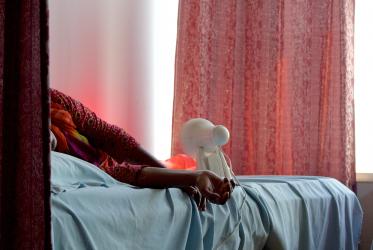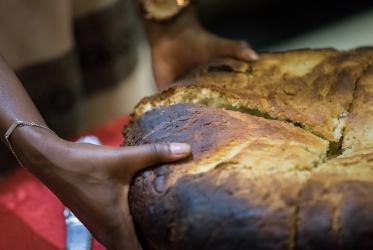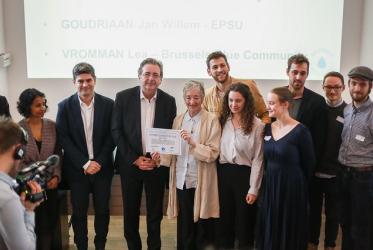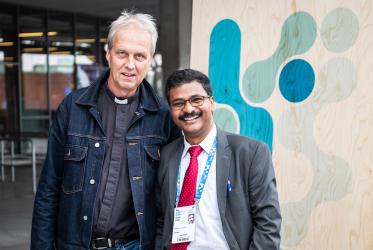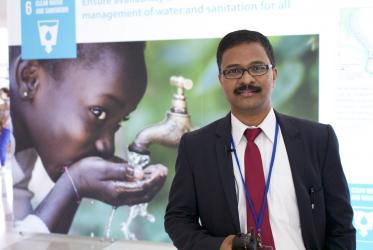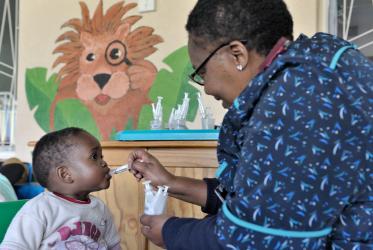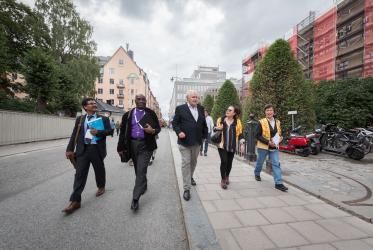Displaying 61 - 80 of 143
15 December 2020
Faith communities vital in overcoming hunger
18 March 2020
WCC joins gathering of Blue Communities in Brussels
06 December 2019
WCC President Wejryd: ‘Water, in many ways, represents God’
27 September 2019
Water and Faith showcase highlights results of collaboration
26 August 2019
On the journey to HIV – bridging gaps, debunking myths
21 February 2019
Dialogue addresses improving HIV testing and treatment for children
10 December 2018
Dr Cecile De Sweemer, the doer of God
30 November 2018
Faith and Water: Translating words into action
30 August 2018
Why faith matters for clean water
27 August 2018
